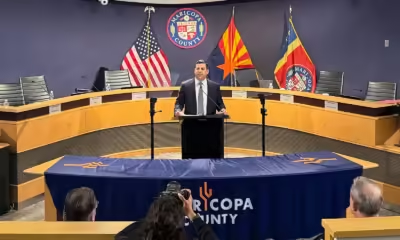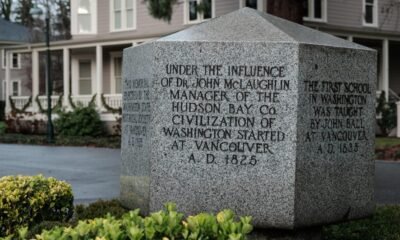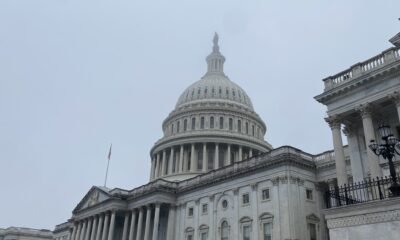Politics
The Carter Legacy: A Fresh Perspective Emerges

Jimmy Carter is often viewed as one of the 20th century’s notable U.S. presidents, yet his legacy is often overshadowed by criticism of his administration. Historians have pointed to issues of inflation, social unrest, and the Iran hostage crisis as evidence of a failing presidency. However, a closer examination reveals significant achievements that have been overlooked.
Carter’s leadership was pivotal during a tumultuous era marked by the aftermath of the Vietnam War, Watergate, and multiple oil shocks that battered the U.S. economy. While inflation soared and a recession unfolded—largely due to factors beyond his control—Carter was often unfairly blamed. Republican narratives quickly capitalized on this discontent to frame his administration as unsuccessful.
Yet, the Camp David Accords strike a contrasting note, establishing a framework for peace between Egypt and Israel through Carter’s active diplomacy. He infused human rights considerations into U.S. foreign and domestic policies. His administration also achieved significant deregulation in several critical sectors and successfully navigated the complex issue of the Panama Canal’s future. Furthermore, Carter managed the normalization of relations with China and facilitated the SALT II treaty with the Soviet Union.
Critics often highlight Carter’s inability to secure the release of American hostages in Iran as a major failing. In April 1980, during the hostage crisis, Carter authorized “Operation Eagle Claw,” a military mission aimed at rescuing the captives. Unfortunately, the operation experienced catastrophic failures, exacerbated by a sudden sandstorm that hindered landing efforts and resulted in the loss of lives and aircraft.
The fallout from this operation deepened tensions between the U.S. and Iran, as authorities sought to further isolate the hostages. Despite the setbacks, the administration pursued negotiations that ultimately involved discreet communication with the incoming Reagan team; this led to the hostages’ release shortly after Carter’s departure from office.
Had the operation succeeded without incident, a different historical narrative might have emerged. A potential re-election for Carter could have preserved progress on social justice and global détente. Economic policies initiated in his first term could have led to positive outcomes, and the consequences of Reagan’s agenda might have been far-reaching.
A second Carter administration may have also prevented key events such as the Iran-Contra scandal, the expansion of trickle-down economics, and various social policies that favored deregulation and diminished federal oversight. Initiatives to address environmental issues and the recognition and handling of the AIDS epidemic might have been prioritized over the neglect seen in subsequent administrations.
Ultimately, the trajectory of American history could have shifted significantly, all due to the unfortunate misfortune during a military rescue mission in April of 1980. Sand in helicopters may have altered not just a presidency, but the fabric of American society for decades to come.


















